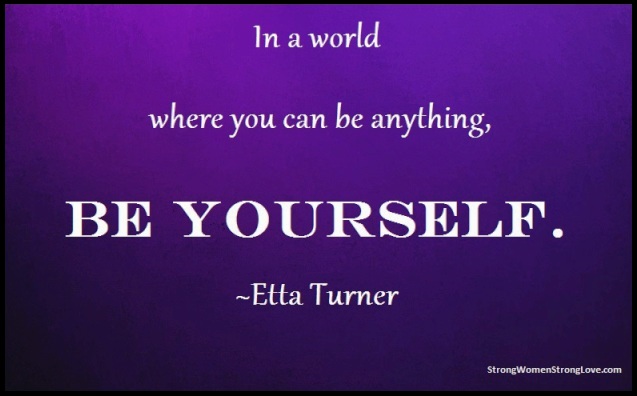by Strong Women Strong Love | Oct 1, 2014 | Books |

Are you looking for books with ideas and strategies to strengthen your marriage?
Of course, if you haven’t read it yet, I’d like to first point you toward my own book, Strong Women, Strong Love: The Missing Manual for the Modern Marriage. I’m very honored that Strong Women, Strong Love won a 2014 Indie Excellence Award in the Marriage category.
In my book, I reveal the information most therapists use to help people improve their marriages. I show you how to build a great marriage without compromising your self-confidence and strength as a woman. You also discover specific ways you can reduce the very real risks that stress and recent changes in gender roles bring to your marriage.
To help you continue learning about what it takes to have an incredible marriage, I’d like to share my personal list of favorite marriage books, many of which you will find referenced in Strong Women, Strong Love. I believe so much in the importance of regular care and maintenance of your relationship. These particular books will add to your knowledge of the most vital ways to nurture the bond between you and your husband.
The Seven Principles for Making Marriage Work by John Gottman
In the field of marriage research, Dr. John Gottman’s work has been seminal in helping us understand exactly what makes a marriage succeed or falter. Gottman is well known for being able to predict with fairly high accuracy which couples will divorce. He observes that when the “Four Horsemen of the Apocalypse,” (criticism, defensiveness, contempt, and stonewalling) take residence in a marriage, it’s a strong signal that the marriage is failing. Gottman states that whether you have conflict in a relationship is far less important than how you manage it. If you want to get a handle on the key research findings about marriage, you must read this book.
Hold Me Tight: Seven Conversations for a Lifetime of Love by Sue Johnson
Dr. Sue Johnson is the founder of Emotionally Focused Therapy (EFT) which emphasizes the importance of creating a marriage that is an emotional safe haven. Johnson teaches how to step out of common relationship dances (such as desperately chasing your partner or avoiding him) so that the two of you can meet each other’s needs for connection, comfort, and caring. This book will help you understand your partner’s emotional needs at a much deeper level.
Getting the Love You Want: A Guide for Couples by Harville Hendrix
Getting the Love You Want is a classic in the field of couples therapy. Dr. Harville Hendrix is well known as the creator of Imago Relationship Therapy. He believes that you subconsciously choose your partner because he is the right person to help you heal from the emotional hurts you carry from childhood (and vice versa). Hendrix suggests that once the glow of romance wears off, it’s important for a couple to deal with whatever emotional baggage shows up. This book teaches you how to deal with each other’s emotional hot buttons so you can eventually have a deeply satisfying relationship.
Marriage Rules: A Manual for the Married and Coupled Up by Harriet Lerner
You may be familiar with Dr. Harriet Lerner’s classic book The Dance of Anger. Lerner is a distinguished psychologist who has an amazing ability to translate her many years of clinical experience into wise, practical, helpful advice. In Marriage Rules, she gives readers 100 insightful “rules” for improving your marriage. I think you’ll find this book useful no matter how long you’ve been married.
The New Rules of Marriage: What You Need to Know to Make Love Work by Terrence Real
As I do in my book, Terrence Real (a family therapist with a focus on men’s issues and couples therapy) gets into the issue of how gender roles have changed and how that affects marriage. One of his most useful pieces of advice to women is to avoid “losing strategies” with men, such as needing to be right, controlling your partner, and withdrawal. If you are looking for a better understanding of the male perspective, this book can be tremendously helpful.
We Love Each Other, But … Simple Secrets to Strengthen Your Relationship and Make Love Last By Ellen Wachtel
This book is a little under the radar, but it has lots of smart advice about the trouble spots that marriages can hit. Dr. Ellen Wachtel, a marriage and family therapist, knows what works, whether your issue is disagreements about parenting or a sex life that’s gone cold. Her core message is that you can keep love, warmth and good feelings alive in your marriage for the long haul.
These are a few of the best books about marriage out there. Please check back periodically as we add reviews of other books that can help you keep your relationship solid.
by Strong Women Strong Love | Sep 15, 2014 | Poisonous Patterns |

An interesting new study confirms something you perhaps knew intuitively. The findings? When someone forgives and stays with a cheating spouse, we tend to think less of that person, especially if he or she is in a leadership role.
I think there’s definitely a societal expectation to dump a spouse who is caught cheating. Just look at how many more popular songs there are about taking revenge on philanderers vs. taking them back!
At the root of that expectation might be some self-righteousness. People tend to think that an affair would never happen in their marriage. But I can tell you as a psychologist that affairs happen to all types of couples, and that some people who have affairs are the last people you’d ever suspect. Affairs don’t just happen to serial philanderers or die-hard cheaters. They happen to people who love their spouses, care about their marriages and never intended to cheat.
We’re all vulnerable sometimes in our marriages. Dr. Janis Abrahms Spring, a leading expert on the topic of affairs, confirms that there are often external stressors preceding an affair, such as the birth of a child, career success, or job loss. In our busy lives, meeting each other’s needs takes work. And sometimes opportunity lines up with unmet needs and disconnection in a way that leads to an affair.
Infidelity brings pain and distrust to a relationship, but if both partners still care about the marriage and each other, it doesn’t automatically mean the end of the relationship. (Again, we’re not talking about serial philanderers here — that’s a bigger problem and a very different situation than the average affair.)
How does healing happen? First, the partner who cheated has to be transparent. He must be willing to admit what he has done and acknowledge the hurt it caused. This process goes a lot deeper than just saying “I’m sorry, now let’s move on.”
The unfaithful partner also has to be willing to help the hurt spouse heal. She must answer questions, be with the partner through the considerable pain that comes after an affair and do what she can to help her spouse trust her again. This process can be lengthy and very emotionally difficult.
As scary as it may be, the hurt spouse has to be open to the repair attempts of their partner. Although there is a natural tendency to want to make your spouse “pay” for what they’ve done, in the long run doing so sabotages your attempts to heal. Opening your heart to your partner knowing there’s some risk of being hurt again can be terribly frightening, but if your partner seems genuinely remorseful, know that taking these risks is a critical part of the healing process.
At some point, it’s important for both parties to see if there is anything that made their relationship vulnerable to the affair. Infidelity can be a indication that something else was going wrong in the relationship. According to relationships expert Dr. Sue Johnson, affairs often take root when partners are disconnected or feel unappreciated.
Even though the trust in the marriage has been heavily compromised, the wronged spouse can’t constantly play watchdog. Although shattered trust may never be fully repaired, it doesn’t mean you can’t rebuild a strong, emotionally-close relationship. I’ve seen some clients’ relationships become healthier in many ways after an affair because it forced them to finally deal with their issues.
I wish I could tell you that the path back from infidelity is an easier one, but, contrary to what popular opinion tells us, there is a path there.
Note: If you are dealing with an affair, consider reading After the Affair: Healing the Pain and Rebuilding Trust When a Partner Has Been Unfaithful by Dr. Janis Abrahms Spring for some great advice on dealing with the aftermath of infidelity.
by Strong Women Strong Love | Sep 4, 2014 | Personal Power, Quotes |

In a world
where you can be anything,
BE YOURSELF.
~Etta Turner
by Strong Women Strong Love | Aug 31, 2014 | In the News, Persistent Pressures |

Be honest: Has the holiday weekend left you refreshed, or are you exhausted right now?
The Labor Day holiday seems like an appropriate time to take a closer look at how much women work, how tired it’s making us, and the effect of all this “laboring” on our marriages and families.
Let’s start with a few important facts that provide clues about why you may be finding yourself so tired these days:
–Data from a CDC survey shows that women actually do report feeling exhausted more often than men do. The difference is most pronounced in the years that most of us are raising families.
–Women’s financial responsibilities in the family have increased significantly in recent years. According to the Pew Research Center, in 40% of the households that have children under 18, mothers are the primary or sole breadwinners.
–Although men are certainly doing more domestic chores than in the past, the Bureau of Labor and Statistics reports that working women are still carrying more of the housework burden.
–This probably won’t surprise you, either: A study published in the American Sociological Review, found that women multitask more than men, spending 40% of their waking hours doing at least two activities at once. Most of the juggling is with household tasks and childcare, two areas in which women are often judged by others if they don’t do them well.
–A study by the University of New Hampshire found that when kids were sick, 74% of mothers missed work to stay home with their sick child compared to 40% of men. Many families find that demands made by employers make it difficult to fulfill other important responsibilities, thereby constantly increasing work stress (and exhaustion).
All of this takes its toll on our relationships. We get snappy and impatient with our kids, and it’s hard to have emotional or physical intimacy with our partners when we’re so tired and stressed (See blogpost on “The Science of Flipping Your Lid”).
Speaking with the Washington Post about the topic of exhaustion, author and researcher Brene Brown notes that fear can be a barrier to fighting constant overwhelm. People in her studies have told her: “If I really stopped and let myself relax, I would crater. Because the truth is I’m exhausted, I’m disconnected from my partner, I don’t feel super connected to my kids right now.”
If you see a lot of yourself in this statement, consider these ideas for dealing with exhaustion:
1. Remember you’re not alone. First, it’s important to realize that it isn’t “just you.” Economic realities are having a huge impact on life for American families. Brene Brown reminds us that we’re also up against cultural norms that tie our self-worth to our productivity and make being constantly busy and exhausted a status symbol of sorts.
2. Do one thing at a time when you can. Make every effort to curb multitasking. Although it may seem like you’re getting more done, did you know multitasking actually reduces productivity? Not only that, it’s mentally and physically exhausting!
3. Stop saying, “yes.” Although some reasons for our busyness and exhaustion can’t be avoided, others can. As women, our default answer when someone asks us to do something tends to be “yes.” We don’t want to disappoint anyone, but we’re much more effective, and happier, when we set stronger boundaries. Limit how much you have on your plate, and you’ll have more time and energy for the people and things you love.
4. Choose you. Everyone needs time to refuel. Take time to rest, play, and do things that energize you. Taking time for you is not being “lazy;” it’s absolutely essential to your health and well-being.
5. Work together. Finally, and most importantly, work together with your partner. Instead of stewing about what your husband isn’t doing, ask for more help with housework and child care. And don’t stop him and take over when he doesn’t do things exactly your way. (See blog posts on micromanaging) Instead of trying to divide all your household tasks 50-50, look for ways to share responsibilities that play to your individual strengths. If he loves cooking and you love Quicken, for example, let him handle meal duty while you take care of your finances. All of this takes negotiation, of course, but it’s worth the effort. With all of the overwhelming demands on our families, you’ll both feel a lot better facing them as a team.
So in honor of this Labor Day weekend, make a vow to labor less, and to rest, play, and reconnect with your husband and kids much more.
by Strong Women Strong Love | Aug 21, 2014 | Quotes |

One day you will ask me
which is more important?
My life or yours?
I will say mine and you will
walk away not knowing that
you are my life.
~Khalil Gibran






